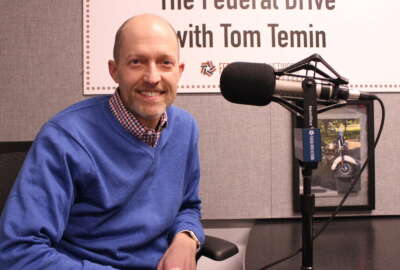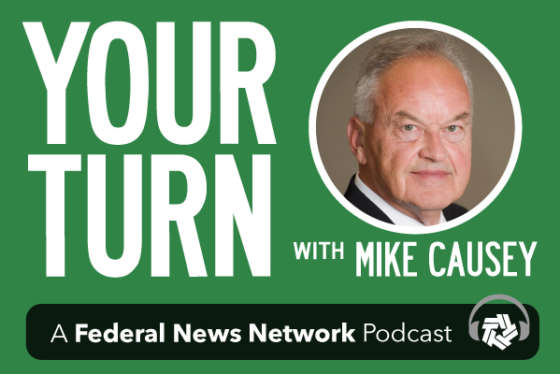
NARFE projects election will overshadow federal pay, benefits in 2020
Experts from the National Active and Retired Federal Employees Association said the election season will overshadow much of what should happen on Capitol Hill.
Best listening experience is on Chrome, Firefox or Safari. Subscribe to Federal Drive’s daily audio interviews on Apple Podcasts or PodcastOne.
If the end of 2019 brought legislation that federal employees welcomed with open arms and a “it’s about time” relief, 2020 is shaping up, perhaps, to do the opposite.
John Hatton, the National Active and Retired Federal Employees Association’s (NARFE) director of legislative and political affairs and Jessica Klement, NARFE’s VP for policy and programs, said on Your Turn with Mike Causey that the election season will overshadow much of what should happen on Capitol Hill.
“We saw a lot of positive movement for the entire federal community at the end of last year,” Klement said, noting paid parental leave, the 3.1% average pay raise and an extension of the reemployed annuitant’s waiver.
But both Klement and Hatton think 2020 is shaping up as a quiet legislative year, with a lengthy and contentious election season before us.
Hatton expects either a 3.5% or 3% pay raise will pass in a House appropriation bill, but does not expect it before October 1, 2020.
The feeling is that the U.S. Senate is harder to read when it comes to such a pay raise.
One reason for the pessimism is that recesses for party conventions, campaigning and district work periods mean fewer days in D.C. for legislators.
But Klement said not all is lost. She encouraged NARFE members to use their congressman’s district work periods to meet them in their local offices.
“Nothing drives legislation like the viewpoints of constituents,” she said.
Hatton and Klement also discussed the specifics of paid parental leave and certain retirement benefits that are on the (proposed) chopping block.
While there are real concerns about how, in some ways, federal employees and retirees are under siege, something like paid parental leave is a shining example of how positive things can get done.
“There’s been study after study that shows what a policy like this can do to retention efforts,” Klement said.
In the long run, she says, it saves big money in turnover costs.
Copyright © 2025 Federal News Network. All rights reserved. This website is not intended for users located within the European Economic Area.
Peter Musurlian is a producer at Federal News Network.
Follow @PMusurlianWFED
Related Stories






